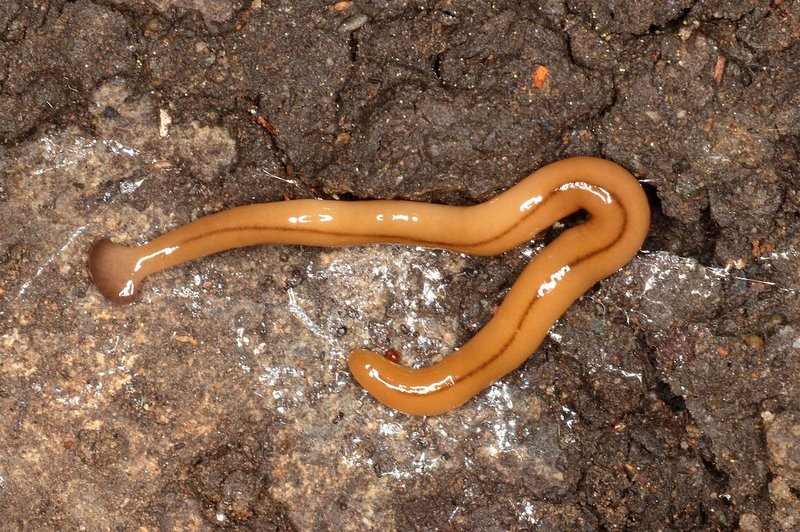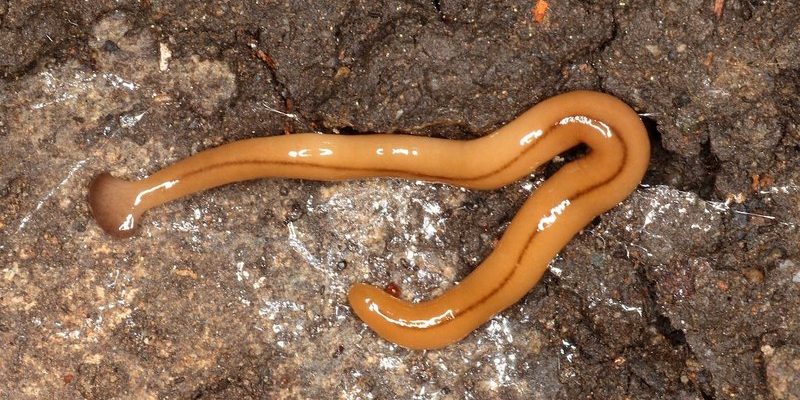
So, how do we keep these critters at bay? It all comes down to good garden cleanup practices. You want to create an environment where hammerhead worms feel unwelcome. Think of it like setting up a fortress: you want to make sure everything is in order and that all potential entry points are sealed off. In this article, I’ll guide you through some effective strategies you can use to clean up your garden and discourage these troublesome worms from taking residence.
Understanding Hammerhead Worms
Before we dive into the cleanup practices, it’s important to understand what hammerhead worms actually are. These are not your average earthworms; they’re known for their unique, broad, hammer-like heads. They can grow up to 12 inches long and come in various colors, usually brown or gray. But what makes them particularly dangerous is their diet—they feast on earthworms, which are crucial for healthy soil.
You might be wondering how they got into your garden in the first place. Hammerhead worms are often introduced through potted plants, soil, or mulch. They’re typically found in warm, moist environments, making gardens a perfect home for them. If you notice these worms, it’s a sign that your garden cleanup routine might need some work.
Regular Weeding and Cleaning
One of the simplest ways to prevent hammerhead worms is to keep your garden tidy. Think of weeds as unwanted roommates—they take up resources and create hiding spots for pests. Regularly pulling weeds helps expose the soil and makes it less inviting for these worms.
Here’s how you can tackle this task:
- Schedule regular weeding: Aim to pull weeds at least once a week. It’s a great way to stay on top of things before they get out of hand.
- Use mulch wisely: While mulch can add beauty and help with soil moisture, it can also provide a cozy home for hammerhead worms if it gets too thick or decomposed.
- Dispose of debris: Keep your garden clear of dead leaves and plant clippings, as these can attract worms. Compost what you can, but be sure to monitor for any signs of pests.
By keeping your garden neat and clean, you create an environment that’s less hospitable for hammerhead worms, making them think twice about moving in.
Soil Management Tips
Healthy soil is the backbone of any thriving garden, but it can also be a magnet for unwanted pests if not managed correctly. Focusing on soil health can help you discourage hammerhead worms from sticking around.
Here are some effective soil management tips:
- Rotate your crops: Changing the location of your plants can confuse pests and disrupt their life cycles.
- Practice good drainage: Hammerhead worms thrive in damp environments. Ensure your garden has proper drainage to keep the soil dry.
- Add organic matter: Using compost can enrich your soil, but make sure it’s well-aerated and not compacted, as this can attract pests.
By paying attention to your soil practices, you’ll not only promote healthy plants but also make your garden less appealing to hammerhead worms.
Natural Deterrents
If you’re looking for ways to keep hammerhead worms away without resorting to harsh chemicals, consider using natural deterrents. Just like how a spritz of peppermint oil can keep spiders at bay, there are several natural options you can try out.
Here are some effective natural deterrents:
- Citrus peels: Hammerhead worms dislike acidic environments. Placing citrus peels around your garden can help repel them.
- Salt or coffee grounds: A sprinkle of salt or used coffee grounds in areas where you’ve seen these worms can create an unwelcoming atmosphere.
- Essential oils: Certain essential oils, like neem or eucalyptus, can deter pests. Mix them with water and spray around your garden.
These natural deterrents not only help keep hammerhead worms away, but they also maintain the overall health of your garden without introducing harmful chemicals.
Encouraging Beneficial Wildlife
Believe it or not, some wildlife can actually help you manage pests like hammerhead worms. By creating a welcoming environment for beneficial creatures, you’re enhancing the natural balance in your garden.
Here’s how to attract helpful wildlife:
- Install bird feeders: Birds love to munch on pests, including worms. Setting up a feeder can invite these little helpers into your garden.
- Build insect hotels: Providing spaces for beneficial insects, like ladybugs and lacewings, can keep pest populations down.
- Plant native species: By planting flowers and plants that are native to your region, you’ll attract local pollinators and other beneficial wildlife.
By encouraging the right wildlife, you create a natural ecosystem in your garden that helps keep hammerhead worms and other pests in check.
Inspections and Early Detection
The earlier you catch a problem, the easier it is to manage. This applies to hammerhead worms, too. Regular inspections of your garden not only help you identify these pests but also allow you to take action before they become a bigger issue.
Here’s what to look for and how to conduct inspections:
- Check soil regularly: Digging a little into the soil can help you spot any worms before they multiply.
- Monitor plant health: If your plants start showing signs of distress, like wilting or discoloration, check if hammerhead worms are the cause.
- Use traps: Setting up simple traps can help you catch these worms. For example, you can bury a shallow dish filled with beer or water, which attracts the worms.
By making this a routine part of your gardening, you ensure that any unwanted visitors are dealt with quickly and efficiently.
Keeping your garden healthy and vibrant requires a bit of work, especially when it comes to managing pests like hammerhead worms. By implementing these garden cleanup practices—like regular weeding, proper soil management, and using natural deterrents—you can create an environment that makes these pesky worms feel unwelcome.
Remember, a clean garden is a happy garden! With a little effort, you can maintain the beauty and health of your outdoor space while keeping the hammerhead worms at bay. Happy gardening!

